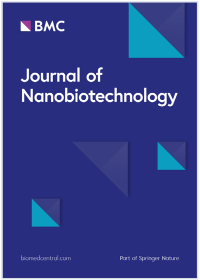Polystyrene nanoplastics induce apoptosis, autophagy, and steroidogenesis disruption in granulosa cells to reduce oocyte quality and fertility by inhibiting the PI3K/AKT pathway in female mice
IF 10.6
1区 生物学
Q1 BIOTECHNOLOGY & APPLIED MICROBIOLOGY
引用次数: 0
Abstract
Nanoplastics (NPs) are emerging pollutants that pose risks to living organisms. Recent findings have unveiled the reproductive harm caused by polystyrene nanoparticles (PS-NPs) in female animals, yet the intricate mechanism remains incompletely understood. Under this research, we investigated whether sustained exposure to PS-NPs at certain concentrations in vivo can enter oocytes through the zona pellucida or through other routes that affect female reproduction. We show that PS-NPs disrupted ovarian functions and decreased oocyte quality, which may be a contributing factor to lower female fertility in mice. RNA sequencing of mouse ovaries illustrated that the PI3K-AKT signaling pathway emerged as the predominant environmental information processing pathway responding to PS-NPs. Western blotting results of ovaries in vivo and cells in vitro showed that PS-NPs deactivated PI3K-AKT signaling pathway by down-regulating the expression of PI3K and reducing AKT phosphorylation at the protein level, PI3K-AKT signaling pathway which was accompanied by the activation of autophagy and apoptosis and the disruption of steroidogenesis in granulosa cells. Since PS-NPs penetrate granulosa cells but not oocytes, we examined whether PS-NPs indirectly affect oocyte quality through granulosa cells using a granulosa cell–oocyte coculture system. Preincubation of granulosa cells with PS-NPs causes granulosa cell dysfunction, resulting in a decrease in the quality of the cocultured oocytes that can be reversed by the addition of 17β-estradiol. This study provides findings on how PS-NPs impact ovarian function and include transcriptome sequencing analysis of ovarian tissue. The study demonstrates that PS-NPs impair oocyte quality by altering the functioning of ovarian granulosa cells. Therefore, it is necessary to focus on the research on the effects of PS-NPs on female reproduction and the related methods that may mitigate their toxicity. PS-NPs reduced oocyte quality and female fertility in mice. PS-NPs inhibited PI3K-AKT signaling pathway in mouse ovary and granulosa cells. PS-NPs decreased cell viability of granulosa cells by inducing apoptosis and autophagy. PS-NPs suppressed steroidogenesis of granulosa cells. PS-NPs reduced oocyte quality by causing granulosa cell dysfunction.聚苯乙烯纳米塑料通过抑制 PI3K/AKT 通路,诱导颗粒细胞凋亡、自噬和类固醇生成紊乱,从而降低雌性小鼠的卵母细胞质量和生育能力
纳米塑料(NPs)是一种新出现的污染物,会对生物体造成危害。最近的研究结果揭示了聚苯乙烯纳米粒子(PS-NPs)对雌性动物生殖系统的危害,但对其复杂的机理仍不完全清楚。在这项研究中,我们调查了在体内持续暴露于一定浓度的 PS-NPs 是否会通过透明带或其他途径进入卵母细胞,从而影响雌性动物的生殖。我们的研究表明,PS-NPs 会破坏卵巢功能并降低卵母细胞质量,这可能是导致小鼠雌性生育能力降低的一个因素。小鼠卵巢的 RNA 测序表明,PI3K-AKT 信号通路是对 PS-NPs 作出反应的主要环境信息处理通路。体内卵巢和体外细胞的 Western 印迹结果表明,PS-NPs 通过下调 PI3K 的表达和减少蛋白水平的 AKT 磷酸化,使 PI3K-AKT 信号通路失活,PI3K-AKT 信号通路伴随着自噬和细胞凋亡的激活以及颗粒细胞中类固醇生成的破坏。由于 PS-NPs 能穿透颗粒细胞而不能穿透卵母细胞,我们利用颗粒细胞-卵母细胞共培养系统研究了 PS-NPs 是否会通过颗粒细胞间接影响卵母细胞的质量。用 PS-NPs 预孵育颗粒细胞会导致颗粒细胞功能障碍,从而导致共培养卵母细胞质量下降,而这种下降可通过添加 17β-estradiol 逆转。本研究提供了 PS-NPs 如何影响卵巢功能的研究结果,包括卵巢组织的转录组测序分析。研究表明,PS-NPs 会改变卵巢颗粒细胞的功能,从而损害卵母细胞的质量。因此,有必要重点研究 PS-NPs 对女性生殖的影响以及可减轻其毒性的相关方法。PS-NPs 可降低小鼠卵母细胞质量和雌性生育能力。PS-NPs 可抑制小鼠卵巢和颗粒细胞中的 PI3K-AKT 信号通路。PS-NPs 通过诱导细胞凋亡和自噬降低颗粒细胞的活力。PS-NPs 抑制了颗粒细胞的类固醇生成。PS-NPs 可导致颗粒细胞功能障碍,从而降低卵母细胞质量。
本文章由计算机程序翻译,如有差异,请以英文原文为准。
求助全文
约1分钟内获得全文
求助全文
来源期刊

Journal of Nanobiotechnology
BIOTECHNOLOGY & APPLIED MICROBIOLOGY-NANOSCIENCE & NANOTECHNOLOGY
CiteScore
13.90
自引率
4.90%
发文量
493
审稿时长
16 weeks
期刊介绍:
Journal of Nanobiotechnology is an open access peer-reviewed journal communicating scientific and technological advances in the fields of medicine and biology, with an emphasis in their interface with nanoscale sciences. The journal provides biomedical scientists and the international biotechnology business community with the latest developments in the growing field of Nanobiotechnology.
文献相关原料
| 公司名称 | 产品信息 | 采购帮参考价格 |
|---|
 求助内容:
求助内容: 应助结果提醒方式:
应助结果提醒方式:


